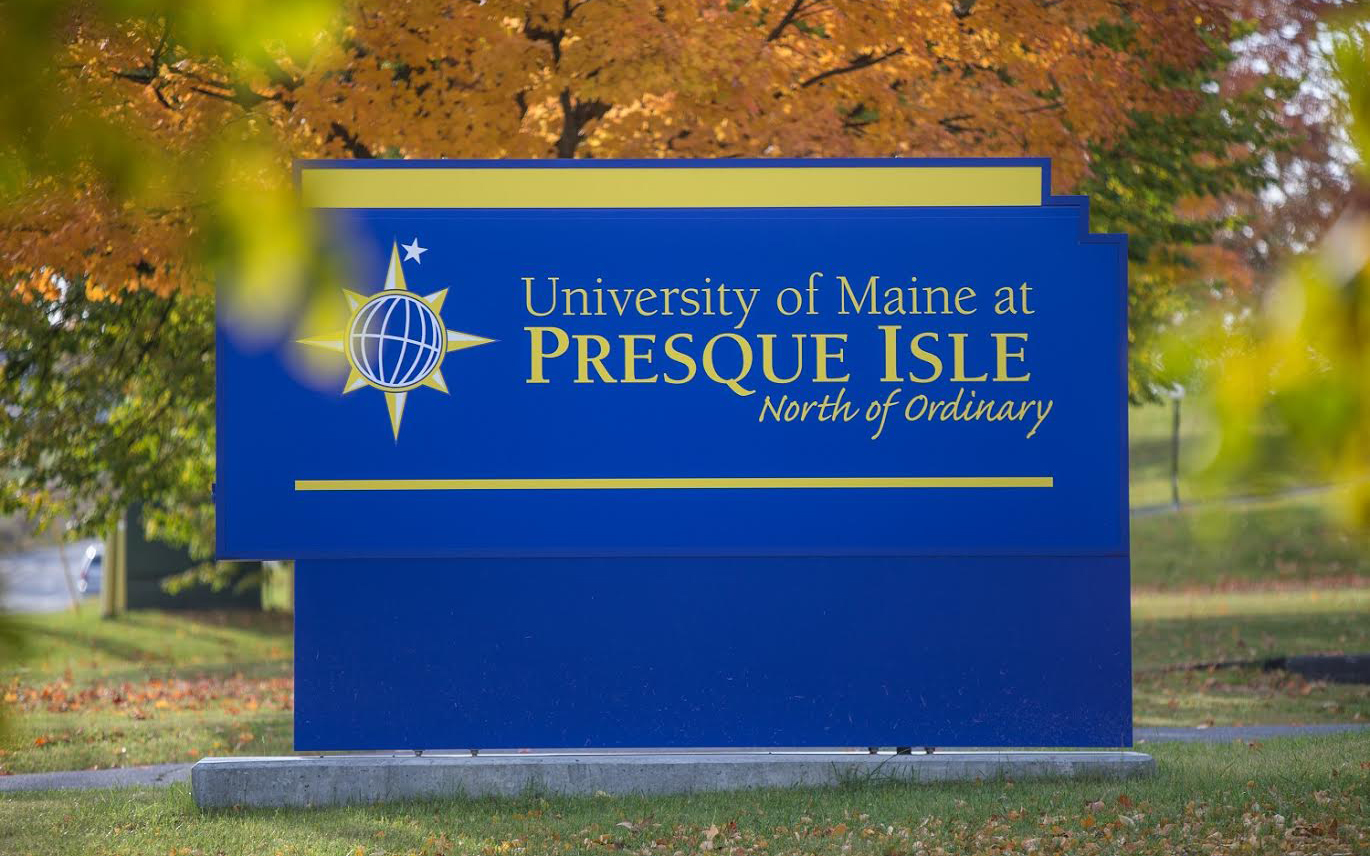University of Maine System Chancellor James H. Page, a native of Caribou and a graduate of the University of Maine at Fort Kent, hosted his last campus town hall meeting in Aroostook County on Friday.
The chancellor, who is retiring on June 30, and University of Maine at Presque Isle President Ray Rice led a discussion during the event on the UMPI campus about the system board of trustees’ strategic priorities, how campus priorities align with them, and how they guide the evolution of the campus and the university system.
“President Ray Rice and the faculty and staff at the University of Maine at Presque Isle continue to innovate and improve in support of our students and the communities of Aroostook County,” said Page. “UMPI has been a strong leader in our work to reform public higher education in Maine and is helping to prepare more people for a life of success and leadership in our rural Maine communities.”
The chancellor highlighted UMPI’s workforce-focused academic innovation, affordability, and early college credit programs during the town hall meeting. He also pointed out how grants and scholarships covered tuition and fees for 212 undergraduate students attending UMPI this spring.
Among the examples cited as ways the university is expanding programs to meet workforce and employer needs were:
— In collaboration with the University of Maine at Augusta, UMPI will begin offering a bachelor’s degree in cybersecurity in fall 2019. The program is designated by the NSA and Department of Homeland Security as a national center of academic excellence in cyber defense education.
— UMPI’s new agricultural science and agribusiness program has had a very busy first year. Last fall, UMPI received a $1 million gift from benefactor Mary Barton Akeley Smith establishing its first ever endowed chair: the Dr. Robert Vinton Akeley Chair of Agricultural Science and Agribusiness. On Thursday, university and community leaders took part in a groundbreaking ceremony for a teaching and research greenhouse.
— Together, UMPI and UMFK are targeting the statewide nursing shortage by offering a bachelor’s in nursing degree program in Presque Isle. Designed especially for place-bound students, this new program will allow students to complete all four years of the nursing degree on the UMPI campus. Program participants will be UMPI students for the first two years, then transition as UMFK students for the remaining two years. They will still take all of their courses on the Presque Isle campus for their last two years, but those courses will be delivered by UMFK nursing faculty and students will graduate with their degree from UMFK.
— In January, UMPI established a new $200,000 MLT Training Center to help address healthcare workforce needs while providing its Medical Laboratory Technology students with a dedicated space that simulates a hospital setting for completing intensive clinical training. The MLT Program of Maine is a collaborative program sponsored by UMPI and the University of Maine at Augusta in cooperation with hospitals across the state that serve as clinical affiliates.
— UMPI’s YourPace program has welcomed 95 new students this year. This $2,000-per-semester accredited online program was designed to meet the needs of adult learners with some college but no degree. It allows them to get college credit for their past learning and work experience while taking advantage of a flat-tuition rate that is less than half the cost of standard, full-time tuition.
Officials also said that for the second year in a row UMPI saw a significant increase in enrollment. It was up 10.4 percent overall in fall 2018, including an in-state jump of 12.1 percent.
“The University of Maine at Presque Isle has always been proud to serve our northern Maine students and neighbors,” said Rice. “During his seven years of service Chancellor Page set the expectation that we could do more through partnership, innovation, and an unrelenting commitment to student and state success.
“Working under the One University framework UMPI is leading state collaborations,” he added. “We are also attracting more young people and working adults into programs that graduate students with less debt and more opportunities in the Maine workforce.”








